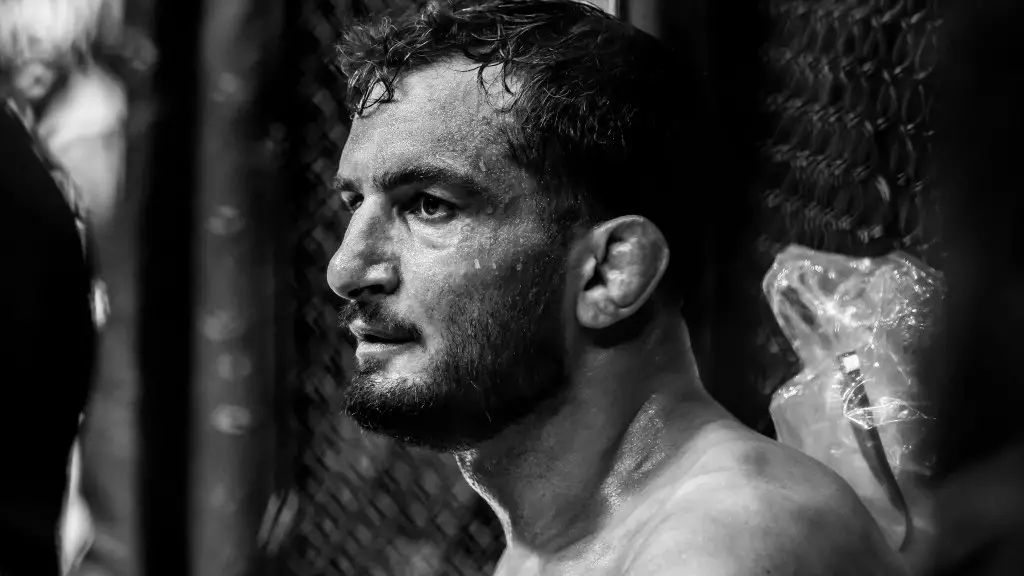In a striking turn of events, mixed martial arts (MMA) fighter Gegard Mousasi has taken legal action against Bellator and the newly established PFL-backed organization, filing a substantial lawsuit that seeks a whopping $15 million in damages. The saga, which has captured the attention of MMA enthusiasts and legal analysts alike, stems from Mousasi’s allegations of breach of contract amidst the tumultuous acquisition of Bellator by the Professional Fighters League (PFL). Through a comprehensive 65-page civil suit lodged in the U.S. District Court for the District of New Jersey, Mousasi names prominent PFL executives, indicating tensions that have escalated to a legal confrontation rather than remaining contained within the confines of athletic competition.
The lawsuit unfolds a complex narrative of contractual obligations that Mousasi claims have been violated. As a former Bellator champion with an impressive record, the expectation was that Mousasi should continue receiving the support and opportunities that his accomplishments warranted. Instead, as the merger changed the promotional landscape, Mousasi found himself in a precarious contractual position, exacerbated by his frustrations with being unable to secure fights following the acquisition.
Contractual Clarity and Misalignment
At the heart of this legal dispute lies Mousasi’s allegations of breach of contract which illuminate the financial and operational dynamics of fighter contracts within promotional organizations. Mousasi’s agreement with Bellator stipulated that he would receive a flat fight purse of $200,000, along with performance bonuses and an additional promotional fee of $600,000 per fight. However, the crux of the issue appears to revolve around his inability to procure fights under the new organizational structure—a situation that is further complicated by the apparent undervaluation of his worth as a fighter by the newly formed Bellator.
Court documents reveal communications from Mousasi’s manager, Nima Sapafour, highlighting a desperate search for clarity and direction following PFL’s acquisition. The evidence presented in the lawsuit raises questions about the nature of Bellator’s intentions and the rights of fighters under these new protocols. With references to “unjust enrichment” and “monopsonization”—a legal term denoting a market situation where a single buyer controls a market, limiting options for suppliers—Mousasi’s suit suggests deeper implications regarding the treatment of athletes by promotional companies.
The repercussions of Mousasi’s lawsuit extend beyond his individual case; they hold potential ramifications for the broader MMA community. Fighters often leverage contracts with organizations that promise transparency and fairness in deal structures. However, Mousasi’s battle underscores the volatility and complexity inherent in the relationships between fighters and promotions, particularly in times of corporate restructuring.
Legal experts are taking a keen interest, as Mousasi’s claims touch on a critical point within MMA: the balance of power between fighters and the organizations that promote them. With ongoing discussions revolving around fighter pay and rights, the outcome of this case could influence contractual standards across the industry, possibly emboldening other athletes to assert their rights. Furthermore, it could drive organizations to be more transparent and fair in their dealings, particularly after witnessing this high-profile confrontation.
As the arena of public opinion weighs in on the unfolding saga, Mousasi’s legacy as a fighter is also at stake. Known for his tenacity inside the octagon as well as a storied career that includes tenures in both UFC and Bellator, the looming specter of legal battles may overshadow his contributions to the sport. The narrative surrounding his career is beginning to shift from his impressive record and championship reigns to a focus on disputes with promotions and contractual entanglements.
As the trial looms, there remains a palpable tension regarding its implications. Fighters, fans, and industry analysts are all watching with interest as Mousasi’s case unfolds, leaving the question: will this legal battle pave the way for a new standard of fairness and equity within the MMA world? The resolution of his claims may not only determine his personal future but could also catalyze a larger discussion on fighter rights that reverberates throughout combat sports. The consequences of this lawsuit will unfold in the public eye, representing both the struggles and the resilience of athletes navigating the complex landscape of professional fighting.

